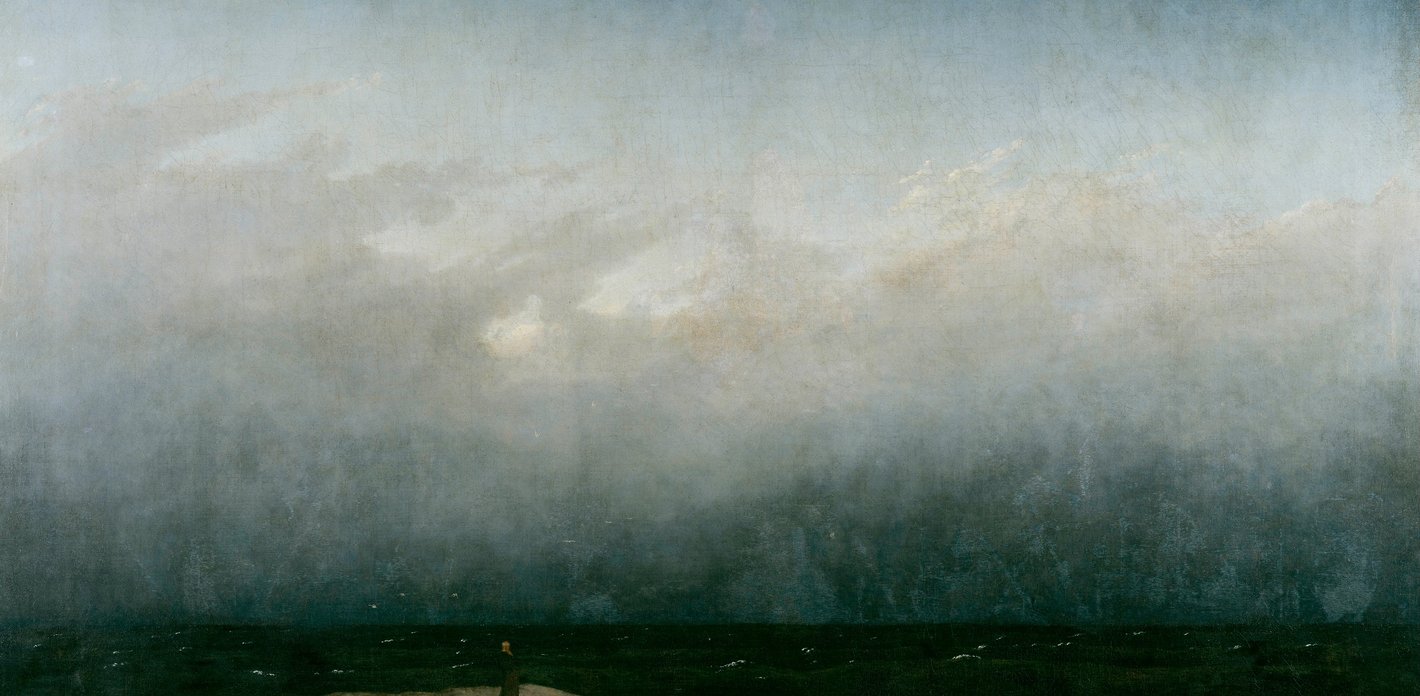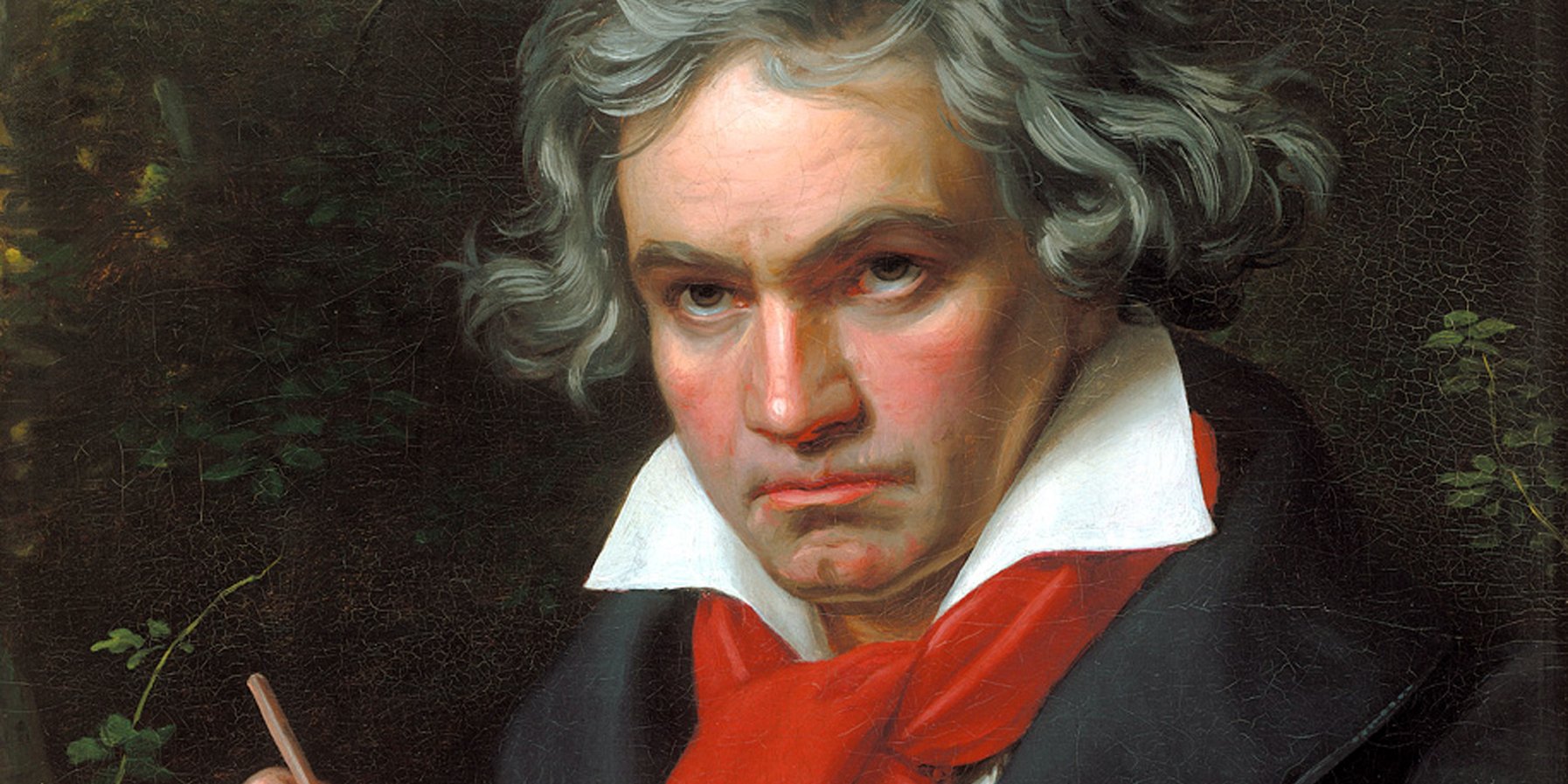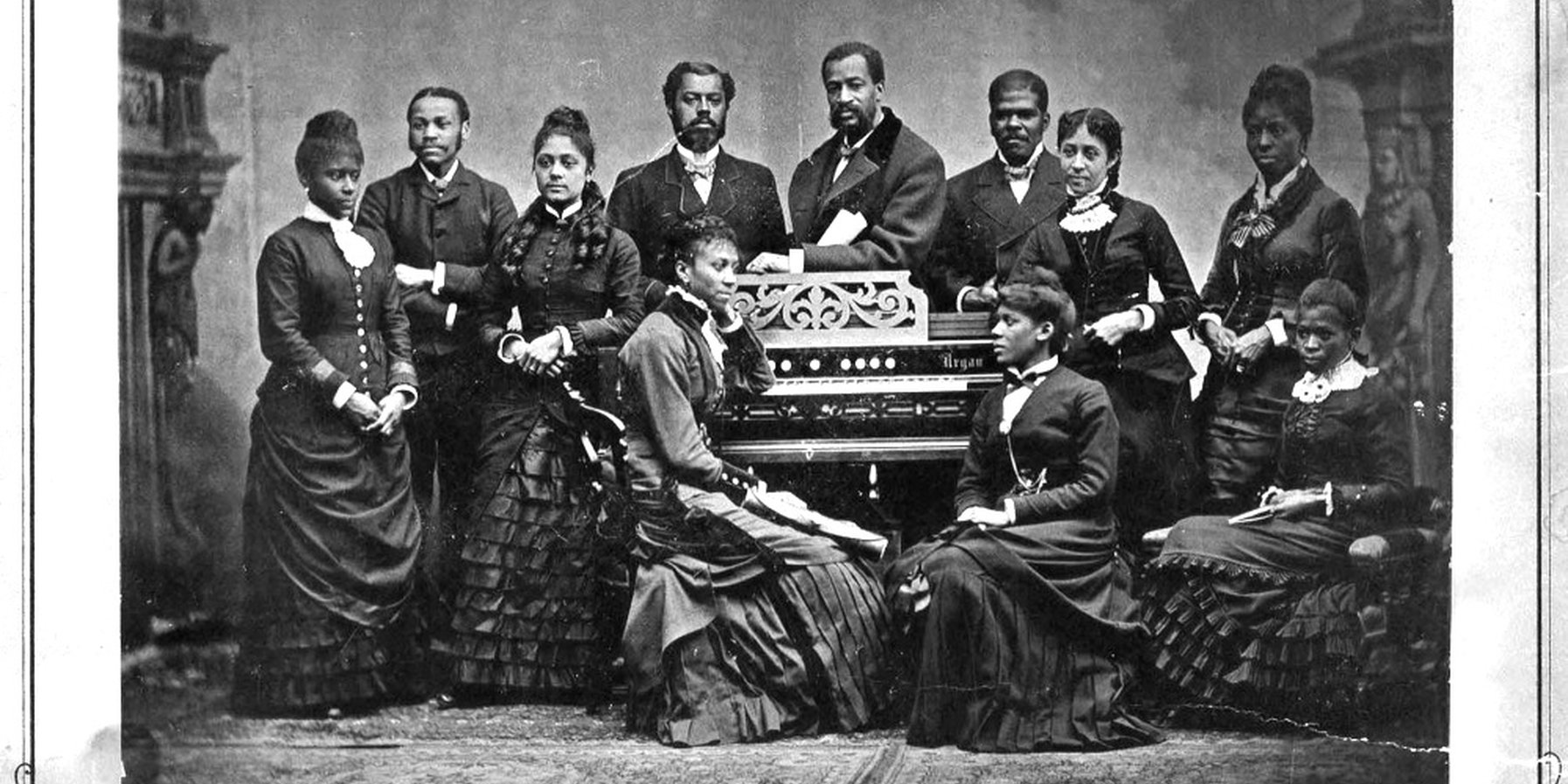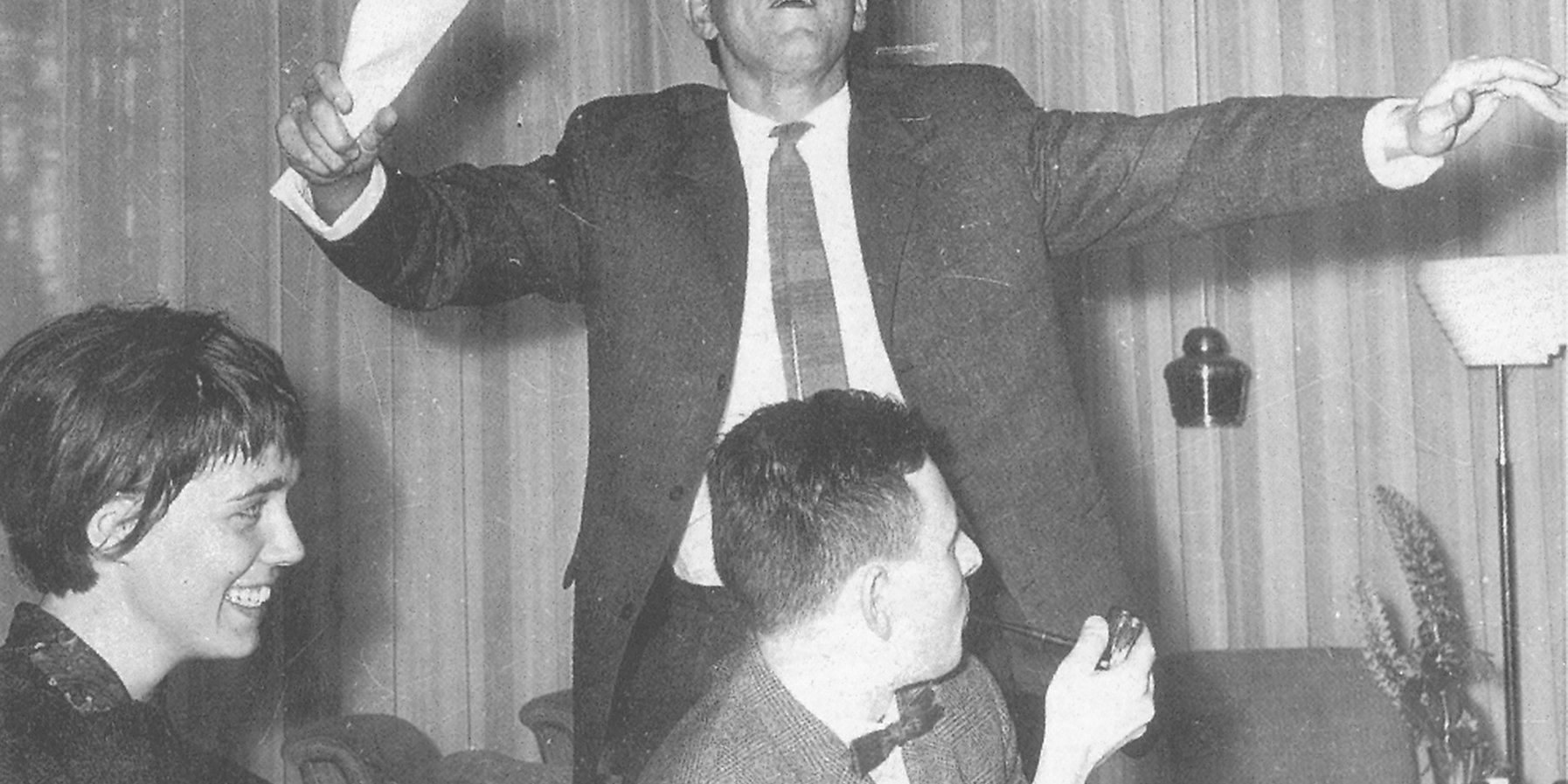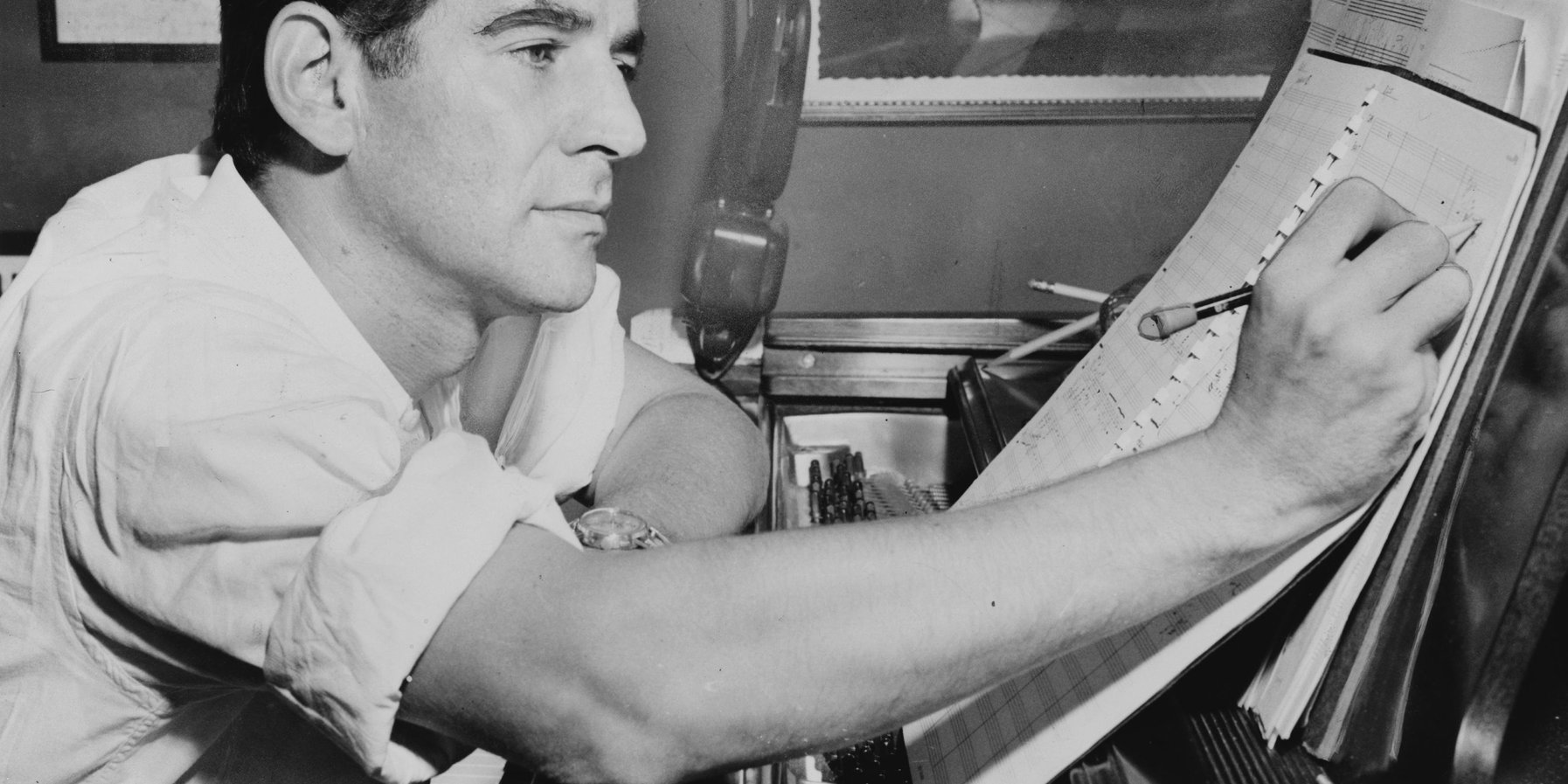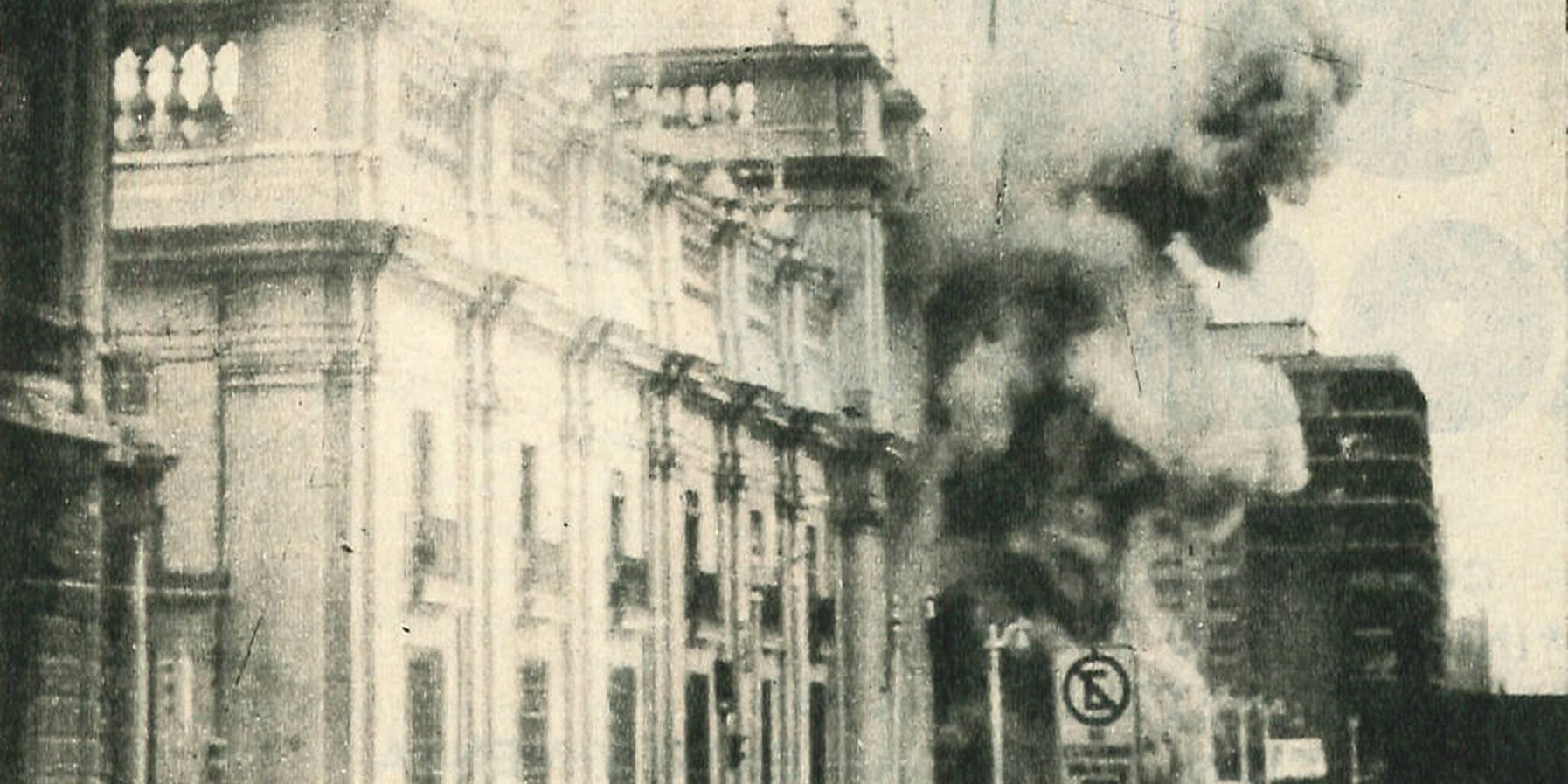LUDWIG VAN BEETHOVEN: ODE TO JOY
»All men become brothers« – as if that wasn't a utopian idea! Beethoven spent years tinkering with the last movement of his Ninth Symphony without really arriving at a plausible final flourish. Then he recalled Friedrich Schiller's »Ode to Joy«, which he had already been planning to set as a song with piano accompaniment as a young man, and his problem with the symphony was solved!
Never mind the fact that Schiller's poem is slightly embarrassing with all its pathos: today, Beethoven's Ninth is a fixed ingredient of any state occasion; it was played when the Berlin Wall came down, and in the Elbphilharmonie at the Hamburg G 20 summit (though in the latter case the audience was presumably a good deal less euphoric). Beethoven was, it's true, an ardent fan of the kind of democratic ideals that seemed practicable for a tiny moment of history at the time of the French Revolution. And this belief can still be felt in his music.

This articlewas published in the Elbphilharmonie magazine (2/2018; German only).
Go down Moses
For the millions of black slaves from Africa who laboured on American plantations under inhumane conditions, the Old Testament offered plenty of characters they could identify with, one of them being Moses. If God had rescued His people Israel from captivity in Egypt, there was surely still hope that the slaves would be freed as well: »Let my people go!«
And at the same time, Christian spirituals gave the slaves the opportunity to preserve cultural traditions from their lost homeland on the other side of the Atlantic: call-&-response chants, strong rhythms and musical scales featuring »blue notes« that couldn't be played on the white masters' pianos. Later on, groups like the Fisk Jubilee Singers helped circulate this music on gramophone records, thus laying the foundations for the blues and all other genuinely American styles.
KARLHEINZ STOCKHAUSEN: HYMNEN
»America, land of refugees, of exiles, of people thrown together: I have written this music for you. You could be a model for the entire world if you lived the way this music describes.«
Karlheinz Stockhausen, 1971
He was a pioneer of electronic music, and perhaps the most important composer of the 20th century: Karlheinz Stockhausen. His work influenced artists like the Beatles, Pink Floyd, Frank Zappa and Kraftwerk, and made the development of techno music possible.
And to achieve his aims, he first had to solder together a computer the size of a large wardrobe in the basement of West German Radio in Cologne; the technology he created can be found nowadays in every smartphone. Much as his music betrays the era it was written in, the underlying concepts are timeless and thoroughly modern. This applies to the composition »Hymnen« of 1967, where Stockhausen arranges some 40 national anthems in order to present his vision of a World Music that would unite the nations.
GIOVANNI PIERLUIGI DA PALESTRINA: MISSA PAPAE MARCELLI
In the mid-16th century, the death knell had sounded for polyphonic church music: at the Council of Trent, many cardinals complained that the use of several overlapping singing voices and lengthy embellishments of individual syllables made the sacred texts hard to understand.
The Word of God, sabotaged by composers! To prove the opposite, the retired Vatican composer Palestrina wrote a setting of the Mass in 1562 with elaborate music that was also text-oriented, and convinced the cardinals with lasting effect. It's true that this account exaggerates the historic facts somewhat; nonetheless, Palestrina has since enjoyed a reputation as »the saviour of genuine church music«, and opens a window to other, divine spheres even for the present-day listener.
LEONARD BERNSTEIN: WEST SIDE STORY
Two lovers who can't be together because they belong to rival clans: in 1957 Leonard Bernstein relocated Shakespeare's »Romeo and Juliet« to New York's West Side. Instead of aristocratic families in Verona, we witness the battle between the native US Jets and the Sharks from Puerto Rico.
In both versions, the story is utopian: it doesn't come to a happy end, it's true, but it paints a picture of a love that overcomes all adversity, and presents the vision of a peaceful future in the final reconciliation. This also applies to the musical genres classical, jazz and Latin, which normally find little common ground: Bernstein combines these very different styles with an irresistible flair that few other composers have managed, before or since.
»All the beautiful sounds of the world in a single word: Maria.«
West Side Story
FREDERIC RZEWSKI: THE PEOPLE UNITED WILL NEVER BE DEFEATED
»El pueblo unido, jamás será vencido« – the people united will never be defeated! With this song on their lips, thousands of demonstrators took to the streets of Chile in 1973 to protest against General Augusto Pinochet's military putsch: with US support, Pinochet forced the democratically elected socialist president Salvador Allende out of office. The song went on to become a symbol of resistance to Pinochet's terror regime.
Two years later, American composer Frederic Rzewski, himself a communist and an outsider in the bourgeois music scene, wrote a monumental cycle of 36 piano variations on the battle song. Five variations each are devoted to a particular pianistic aspect, while the sixth combines them all. First five fingers, then the fist.
JOHN LENNON: IMAGINE
»Imagine all the people living life in peace«
John Lennon
No governments, no religion, no war, no hunger,no possessions, but peace and brotherhood for all men. That was the vision John Lennon described in 1971 in his most successful solo single, »Imagine«, accompanied by gently rippling piano chords.
A wonderful vision of a better world that could be achieved if only enough people joined in? Or just the wonderful naivety of a long-haired hippie in wire-rimmed glasses who spent weeks lying in bed with his artist wife during the Vietnam War, where he gave interviews to journalists and spoke out in favour of world peace? »You may say I’m a dreamer«, Lennon admits himself in the song text. But if utopias always abided by what's plannable and feasible, if they always stuck to what seems realistic – would they still be utopias?
Text: Clemens Matuschek
